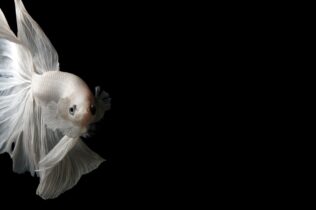Photo by icon0.com.
The original story is a bit blurry. We know for sure that in 2016, the UN declared the International Year of Pulses. How that global marketing campaign reached us is still a bit of a mystery. And why it stuck, well, that’s where things get interesting.
Sometime in 2016, we started joking about the “Year of the Pulse” every time we cooked pulses. Which, back then, wasn’t that often. Any time lentils or beans or chickpeas showed up, one of us would delightedly announce that we were doing right by the food group of the year.
Even once the year changed over we kept shouting, “Year of the Pulse!” anytime we made pulses. In 2019, a friend came to dinner and explained that it was now a full three years since the UN General Assembly had made their declaration and perhaps we had taken this joke a bit too far.
And then in early 2020, the supermarket aisles went bare. All the fresh food. Nearly all the canned food. Until the only things left were large bags of dried beans. Unloved. Abandoned. Pulses.
What started as an occasional running joke quickly became a major staple of our family’s diet.
From 2016-2019, we flirted with pulses. Experimentation. Exploration. Playing around with new ingredients. Essential prerequisites for what would become a major shift.
However, the sum of those little changes wasn’t linear. The big change didn’t show up until 2020. And, even then, it was because overnight the entire decision-making space was constrained. No longer a choice between beans and lentils and something else. But between beans and lentils and nothing else.
The omnivore’s dilemma
We’ve written several times in the last few years about how it feels to be part of a collective experience. Where your individual choices and preferences are overruled by an external force.
It’s often felt like being put on a cruise ship with all of humanity. You can read in your bunk, or walk around above deck and smile politely at strangers. But you can’t control where we’re going or how long it’ll take to get there. (And there’s too much alcohol.) (And no one treats the service staff as well as they should.) (This simile has layers.)
We’ve all spent long enough on that ship that we’ve built up new habits. A new walk around the neighbourhood. A new way you say hello to your team every morning, and a new way you wind down at the end of the day. A new level of reliance on beans, or noodles, or three-cup tofu. Honestly, it’s sort of weird to call those things new these days. Some of them have been around for years.
And now, the ship is pulling in to port. COVID isn’t over, but the collective experience surely is. People are all over the damned place on masking, and testing, and what constitutes an appropriate level of care for one another. The airports and arenas are all open again, and so are the offices. The airports and arenas are packed, the offices less so, no doubt a useful reflection for a different issue of this newsletter.
Intellectually, that should all be very freeing. A lot of the choices that were taken away from us over the last several years are available again. Not for everyone — we’re coming back in a way that leaves many people marginalized and unsafe. But for others, everything is suddenly back on the table. It doesn’t all have to be beans any more.
So now what? What does that mean for you, and your org, and your new habits?
How you spend your time is how you spend your time
The leaders we talk with all seem to be taking stock of things. Their language is decisive, and has a physicality to it. They are picking things back up. And putting things down. And locking things in. And, sometimes, walking away.
It’s harder than it seems. To take stock of where things are, you need to see them all. And we’ve all made so many changes. Some small and peripheral, some big and core. All of them so ingrained that they are hard to spot until you really look.
You know the feeling when you walk into a room, maybe when you’re cleaning, and you suddenly see it? The tags you cut off that shirt last month but kept in case… what? In case you wanted to return it, and the store wanted their price tag back? The visual noise that you just mentally filter out, rather than actually process? You know that feeling?
What happens when you point that feeling at your calendar? “Repeating calendar block” is how most organizations pronounce, “habit.” So, when you look back at the last month, or the last year, what patterns do you see? What are those habits, and are they serving you, as you are now?
Some of these are going to be personal ones — changes to the way you commute, to your childcare, to your ability to make time for exercise or rest. And some are going to be team- or org-wide, like the changes to how you hire, how you collaborate as a team, how you gather as a company. In many cases these changes were forced on us, and built from a reactive place. Often with an asterisk attached, “*for the time being.” As we get toward the end of 2022, the time has been. Our invitation is really just to drag those into the light, and look at them a little more intentionally.
The habits that are strictly a product of pandemic circumstance, and have outlived their usefulness? It’s time to make a plan to shut those down. The ones that represent healthy and helpful rituals that give you energy instead of taking it away? We need a plan for those, too. They’ll need protection to make sure they keep going. And the ones you didn’t even notice creeping in? What do you want to do about those?
– Melissa and Johnathan






